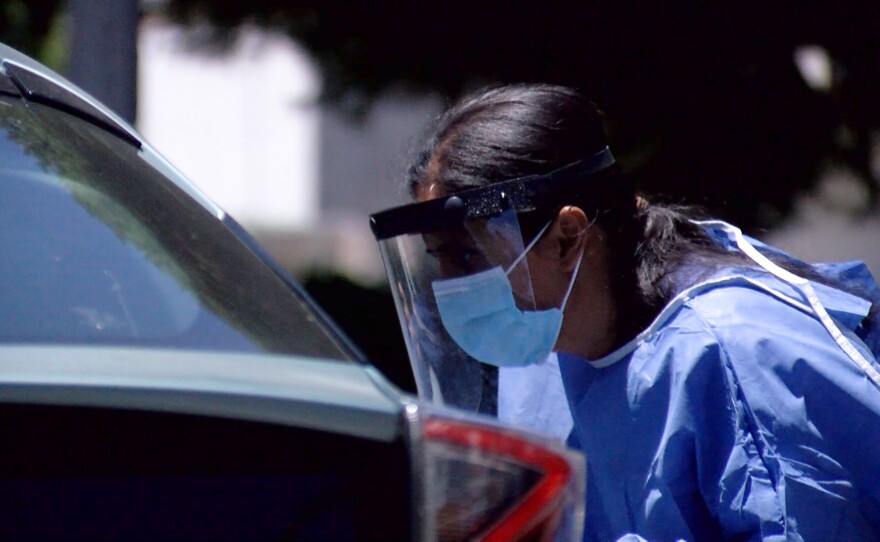San Diego County officials announced additional outreach campaigns Tuesday to the region's Latino community, which has been the hardest-hit group in the COVID-19 pandemic.
The effort consists of a new TV, radio, online and signage campaign describing protective measures and community resources.
To date, of the county's more than 24,000 confirmed COVID-19 cases with known race/ethnicity, about 60% are Latino. That ethnic group makes up about 34% of the local population.
County Health and Human Services Agency data also show the case rate for Latinos is about 1,045 per every 100,000 residents. The only other group with a higher infection rate is Native Hawaiian/Pacific Islanders, with about 1,146 testing positive per every 100,000 residents. In comparison, white San Diegans have a case rate of about 320 per 100,000 and represent 38% of all the cases.
Additionally, more COVID-19 deaths are also being reported in the Latino community. Of the county's nearly 480 deaths, about 45% were Latinos, followed by whites at about 38% and Asians at 12%.
The campaign launched this week comes on the heels of commercials on three of the most listened-to Spanish radio stations in the region. The two ads encouraged Latinos to get tested for the novel coronavirus and to answer the call when a county disease investigator or contact tracer calls them.
"It's important that we continue to encourage Latinos and all San Diegans to take preventive measures to slow the spread of COVID-19," said Dr. Wilma Wooten, the county's public health officer. "We all have a role to play to protect ourselves and others, especially people who are more vulnerable to the virus."
The county and its partners are examining the reasons for the disproportionality. The San Diego Association of Governments points to Latinos being more likely to occupy high-contact professions such as essential or frontline workers who have continued to work during the pandemic and do not have the option of working remotely.
Nancy Maldonado, CEO of The Chicano Federation, released a statement addressing the county's data.
"For months, we have been urging the county to create culturally relevant messaging and outreach, increase testing availability, increase contact tracing through trusted community partners, increase protections for essential workers, and increase support for people who test positive for COVID- 19," she said.
"Despite these actions and solutions, we're still not seeing a response from our county leadership that shows the right level of urgency," she said. "These devastating numbers are the consequence of systemic inequities leading to disastrous outcomes for San Diego's Latino community. People's lives are at stake; we urge our leaders to do more."
Since the beginning of the pandemic, the virus has hadg a more severe impact among Latinos, especially in South Bay communities.
To slow the spread of the virus, the county has expanded testing throughout the region, especially in the South Bay, where more than 50% of all testing is currently being done.
The county opened its newest COVID-19 testing site in Imperial Beach last week, bringing the total number of testing sites in South County to six. Additional testing sites are located in San Ysidro, with two each in Chula Vista and National City.
"We've not only expanded our testing, but we've also increased our contact tracing in the region," said Barbara Jimenez, director for the Central and South regions of the County Health and Human Services Agency.
Jimenez has been spearheading the county's outreach efforts in South Bay communities and has been working with city mayors and other partners to get prevention, testing and tracing messages to area residents.
"We all need to follow the health prevention messages we've been promoting on preventing the spread of COVID-19. Let's take care of ourselves, our families and our community," Jimenez said.
The county has also increased its contact tracing capabilities and now has more than 500 disease investigators and contact tracers who are calling people who tested positive for COVID-19 and their close contacts so that they place themselves in isolation or self-quarantine. Nearly 100 more case investigators will come on board this week and the county will be hiring another 200 from the more than 2,300 job applications it recently received.
In collaboration with San Diego State University, the county is deploying about 100 specially trained community health workers and public health students as tracers. They will help perform contact tracing in underserved communities.






